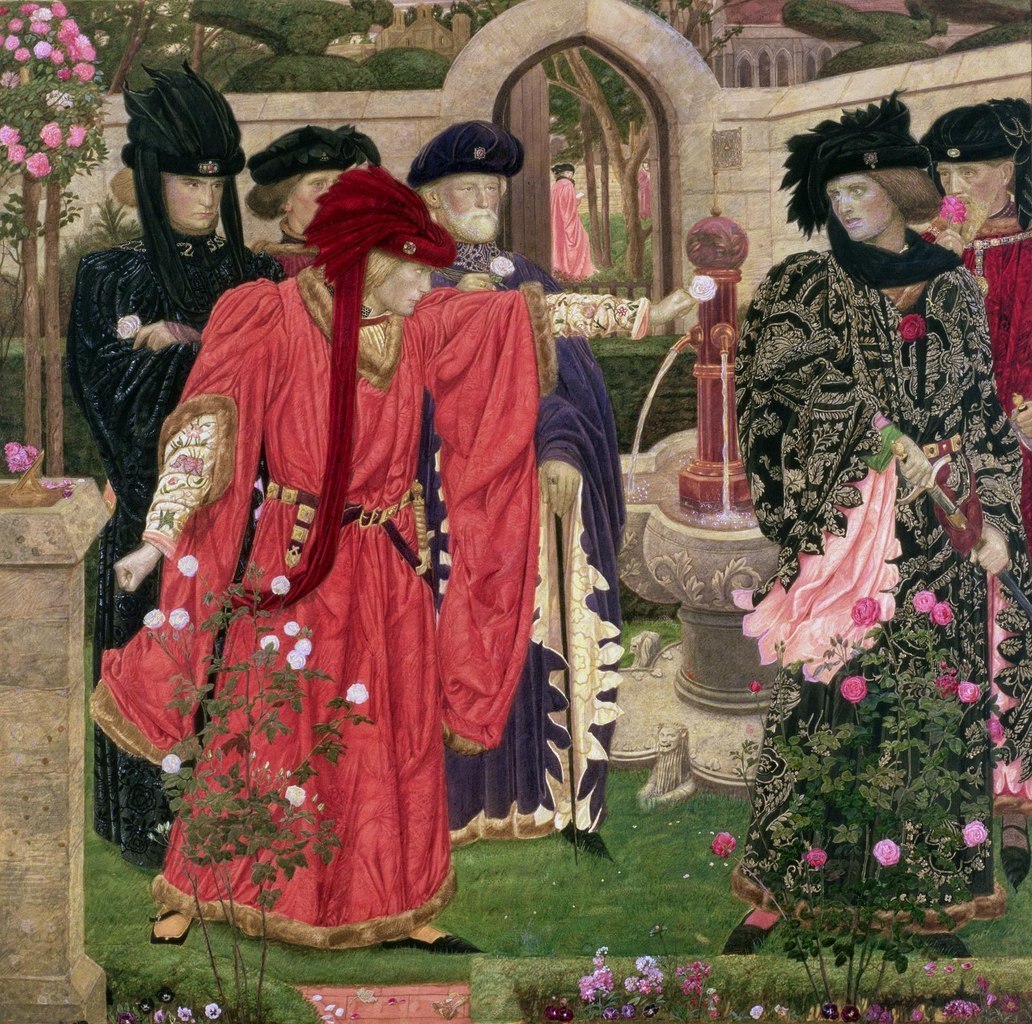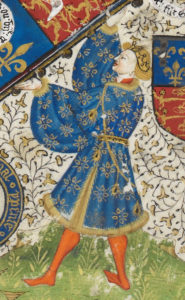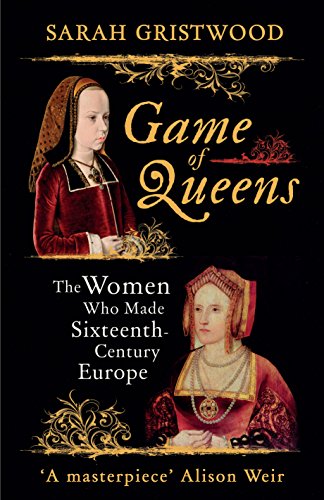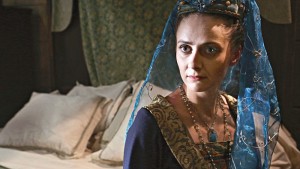Loyal readers will know that I’m something of a ‘Wars of the Roses’ fan. I mean, obviously I’m not actually a fan of any war – but you get what I mean.
Some argue the wars ended in 1471, others in 1485. In reality they are still bring fought today – just on social media rather than the battle field.
Or, to be less dramatic, it is fair to say that the debate around which Royal House – York or Lancaster – had the best claim to the throne is still hotly debated.
 The Wars of the Roses saw the houses of York and Lancaster fight for the throne
The Wars of the Roses saw the houses of York and Lancaster fight for the throne
between 1455 and 1470
The argument – with respect to my fellow geeks – is not always at the most sophisticated level. A slightly flippant summary would go along the lines of ‘I’m a Tudor geek so Lancaster had the best claim’ to be retaliated with ‘York had the moral high ground because I fancy Max Irons.’
Up until recently, my more moderate view was that ‘York probably had the best claim’ while accepting it wasn’t a black and white issue. I even created some quite hilarious memes to that effect. But there’s a reason I decided to pick up my virtual biro and pen this post. That’s right super cool readers…following a bit more research, I have changed my mind.
Let’s have a quick recap. In 1399, Henry Bolinbroke deposed his cousin Richard II and established the house of Lancaster on the throne of England.
Henry IV – as Bolinbroke became – was the eldest boy of John of Gaunt – third son of Edward III.
The Lancastrian crown then passed safely down the dynasty for three generations until in the late 1450s people got fed up with the well meaning but weak Henry VI who was probably mentally ill. He was challenged for the throne by his distant cousin Richard, Duke of York – a descendant of Edmund of Langley, Edward III’s fourth surviving son.
On the face of it therefore, York’s claim seems pretty weak; Langley was certainly the younger brother to Gaunt. But here’s the snag. Richard was also descended from Philippa of Clarence, the daughter of Lionel of Antwerp – Edward III’s second son. So, if you accept that women can transmit their claim to the throne to their male descendants, York really did have a claim worth taking seriously.
Richard, Duke of York claimed the throne as a descendant of Lionel of Antwerp,
Edward III’s second son
By the end of the end of the 15th century, descent through the female line was broadly accepted as a legal basis for succession. Henry VII loosely claimed the throne through his mother, Margaret Beaufort and his son had a far greater claim through descent from Elizabeth of York. Perhaps because my interest in history began in the Tudor era, I have always been tempted to read this mindset into earlier generations and this might be why I had always assumed York’s claim was slightly superior, despite recognising it was complicated.
However, the more I’ve researched the politics, law and conventions of the 14th century, the more I’ve begun to question my thinking. I’ve discovered that- while Salic law, which prohibits women from inheriting the throne was never formally introduced – the trend toward male-only inheritance was gaining currency. Many nobles were entailing their estates so that only sons could inherit.
It would seem that the great Edward III has similar sentiments. Disaster struck the Royal House when Edward the Prince of Wales (known to history as the ‘Black Prince’) died prematurely leaving one surviving son behind. In a world of high mortality, the succession was far from secure.
To the political classes it was unclear whether the next heir after Prince Richard (the future Richard II) was Roger Mortimer, son of Philippa of Clarence (the heir general) or John of Gaunt and his son (the heirs male).
Essentially, because the Duke of York inherited the Mortimer claim via his mother, it is this question that legitimised the Wars of the Roses. But, little did I realise until recently, it is actually one that Edward III had decided to answer. In 1376 he created a document that made clear his intent to entail the throne through the male line. Should Richard II’s line fail, his intent was that the crown should pass to Lancaster.

The mighty Edward III wanted his throne to pass only
through the male line
Legally, the only thing that could really override this would be if Richard had nominated a successor – but he appeared to leave the question open, possibly for political leverage. However he did ultimately name Henry as his successor by the handing over of the ring – admittedly under some duress. When Parliament accepted Henry IV’s sovereignty in 1399 it was probably not because of the size of his army – and indeed there is much to suggest that his ‘coup’ was relatively bloodless – and more to do with the fact that, once a case could be made to dispose Richard, a Lancastrian succession was legally appropriate.
That said, there were those in the reign of Henry IV who always believed the Mortimer claim to be superior – although usually because they had something to gain from thinking like that. I accept this is not a closed conversation.
But what you can’t do, is start applying attitude changes retrospectively. By the 1460s, people were more open to female succession in the 1460s. To an extent, even Lancastrians had to be. Henry VI’s unimpressive efforts in reproduction were leaving Margaret Beaufort as one of the talked about candidates for the crown. But you can’t wind the clock back and uproot a dynasty and this is why no one took York’s claims particularly seriously until he made them good on the battle field. When changes in attitude take place and the rules of succession evolve, it is generally accepted that these apply only to future generations.

In her youth, Margaret Beaufort was talked about by some Lancastrians as the
potential heir to the throne
I’ve had blogged previously about why Edward IV must be deemed a usurper; this post reinforces my views. The House of York did not have a superior claim to the throne than Lancaster; instead they did what other usurping dynasties before them had done – they allowed might to make right and came up with a justification to rubber stamp it. Lancaster had done the same in 1399 by attempting to claim senior descendants from Henry III. It just so happens that York’s claims had a little more credibility to back up their military antics.
Check out RoyalHistoryGeeks on facebook
Follow us on Twitter













